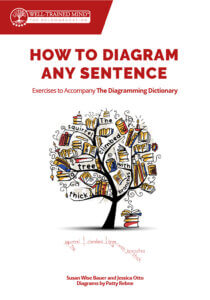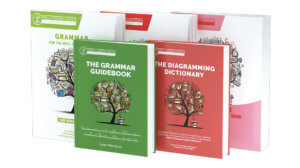Watch as Susan and Kevin guide you through a sample lesson from Grammar for the Well-Trained Mind.
Check out our other videos: Introducing Grammar for the Well-Trained Mind and Teaching Tips for Grammar for the Well-Trained Mind.
Want to dive in? Here is the first six weeks for free!
Transcript:
Susan: I’m Susan Wise Bauer. And I am here with Kevin Boston, who works for the Well-Trained Mind Press. And Kevin has offered to play the role of a somewhat reluctant sixth-grade grammar learner. So we are going to go through Lesson 83, at least part of Lesson 83, which is about conditionals and the subjunctive tense.
We’re not going to do the entire lesson, but I wanted to give you some idea of how Grammar for the Well-Trained Mind actually works. I have Lesson 83 from the Core Instructor Text, which has all of the dialog that you use to teach the student. And Kevin has the copy of the Student Workbook, which has all of the rules, examples, and exercises.
If we had done the previous 82 lessons, we would have already studied conditionals. So I’m going to pick up at the point where we are reviewing what a conditional sentence is, and then we’re gonna go on to discuss the new material which is the subjunctive tense, an introduction to the subjunctive tense.
Here’s where we’re going to start. We’ve learned that there are three kinds of conditional sentences. So what I would like you to do is to begin by reading me those first three bolded lines there, which is the definition of the first kind of conditional sentence.
Kevin: “The first conditional sentences express circumstances that might actually happen. The predicate of the condition clause is in a present tense. The predicate of the consequence clause is in imperative, present or future tense.”
Susan: Good. Read the first example there.
Kevin: “If we surrender and I return with you, will you promise not to hurt this man?”
Susan: Very good. So what you see there is that, “surrender” and, “return” are in the present tense. That’s the condition clause, and “will promise” is in the future tense, that’s the consequence clause. In the second example, you actually have an imperative in the consequence clause. And what is that sentence?
Kevin: So bow down to her if you want. Bow to her.
Susan: Good. So, “bow” is an imperative verb. Okay, that’s good. Let’s go ahead and review second conditional sentences. Read me those three definitions there.
Kevin: “Second conditional sentences express circumstances that are contrary to reality. The predicate of the condition clause is in a past tense. The predicate of the consequence clause is in the simple present modal tense.”
Susan: Modal tense. That’s right. We’ve studied modal tense before. He has no memory of this, and your sixth grader won’t either. But that’s why you use the program for more than one year in a row.
[To the audience] Let me stop for just one minute. The reading out loud that he’s doing, although it sounds a little bit tedious, is incredibly important. This is a big part of the memory process. So I’m constantly throughout here gonna be asking him to read things out loud. That will help his memory process and also help him to really understand how language works. [Returning to Kevin] Okay. So you just read me the definition of second conditional sentences. Read me the first example.Kevin: “I would not say such things if I were you.”
Susan: Very good. Now that first verb is a present modal, “would say.” The second verb is past. So the predicate of the condition clause is in a past tense. If I were you. We won’t read all the examples. Let’s move on and talk about third conditional sentences.
Kevin: “Third conditional sentences express past circumstances that never happened. The predicate of the condition clause is in the perfect past tense. The predicate of the consequence clause is in the perfect present modal, or simple present modal tense.”
Susan: Good. Now in the example, read me the example sentence.
Kevin: “But they would have killed Wesley if I hadn’t done it.”
Susan: Good. “Would have killed” is the perfect present modal. That’s the consequence. If I hadn’t done it, that’s the perfect past. That’s the condition clause. Now what we wanna talk about is something odd that happens to one of these verbs. Each one of those condition clauses that we read has a predicate expressing something that is contrary to fact. Either it didn’t happen, or it couldn’t ever have happened. Or it could have happened, it just hasn’t happened yet. So there are five of those subjects and predicates listed in your work book under the heading contrary to fact. So if you could just read that column out loud.
Kevin: “If we surrender, if you want, if she is, if I were, if we had.”
Susan: Good. Those are all the contrary to fact verbs. Now in the right-hand column, all of those subjects and predicates have been turned from contrary to fact to actual statements of fact. So read them out loud.
Kevin: “We surrender, we want, she is, I was, we had.”
Susan: Good. Now verbs that express unreal situations, so that’s everything in the “Contrary to Fact” column, are said to be subjunctive verbs. Read me the definition of a subjunctive verb.
Kevin: “Subjunctive verbs express situations that are unreal, wished for, or uncertain.”
Susan: Good. That is as opposed to an indicative verb. Read me the definition of an indicative verb.
Kevin: “Indicative verbs affirm or declare what actually is.”
Susan: Now what you’ll notice from those columns is that all of the contrary to fact verbs are subjunctive. All of the fact verbs are indicative. And in most cases, they look almost exactly the same. What is the one verb that has a different form in the subjunctive than in the indicative?
Kevin: “Were” and “was.”
Susan: “Were” and “was.” Exactly. So a long time ago the English language had different forms for all of its subjunctive verbs. Over time most of them fell out of use. So in English today, subjunctive verbs usually look like the regular present tense except for state of being verbs, and that’s where we’re gonna see a difference.
[to the Audience] So then the remainder of this lesson, is a set of exercises that will help Kevin to go through and identify when he needs to change the form of the state of being verb in order to make it into a correct subjunctive verb.Recommended Products
-
Sale!

The Well-Trained Mind: Essential Edition
0 out of 5$39.99$34.95 Add to cart -
Sale!

Ozma of Oz
0 out of 5$19.46 – $25.46 Select options -
Sale!

The Marvelous Land of Oz
0 out of 5$19.46 – $25.46 Select options -
Sale!

Dale’s Tales
5.00 out of 5$8.95$6.71 Add to cart -
Sale!
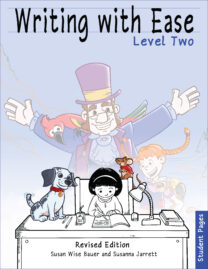
Writing With Ease 2, Revised Student Pages
0 out of 5$15.95 – $16.11 Select options -
Sale!
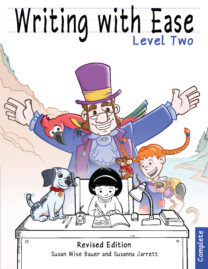
Writing With Ease 2, Complete Revised Edition
0 out of 5$31.95 – $33.11 Select options -
Sale!
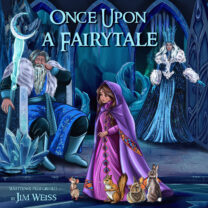
Once Upon a Fairytale
0 out of 5$9.71 – $12.71 Select options -
Sale!

Napoleon and the French Revolution
0 out of 5$11.01 – $14.41 Select options
ABOUT THE AUTHOR
Well-Trained Mind Press Staff
Join over 100,000 homeschooling families
For the latest offers, educational insights, products and more.
By joining you agree to our privacy policy.








